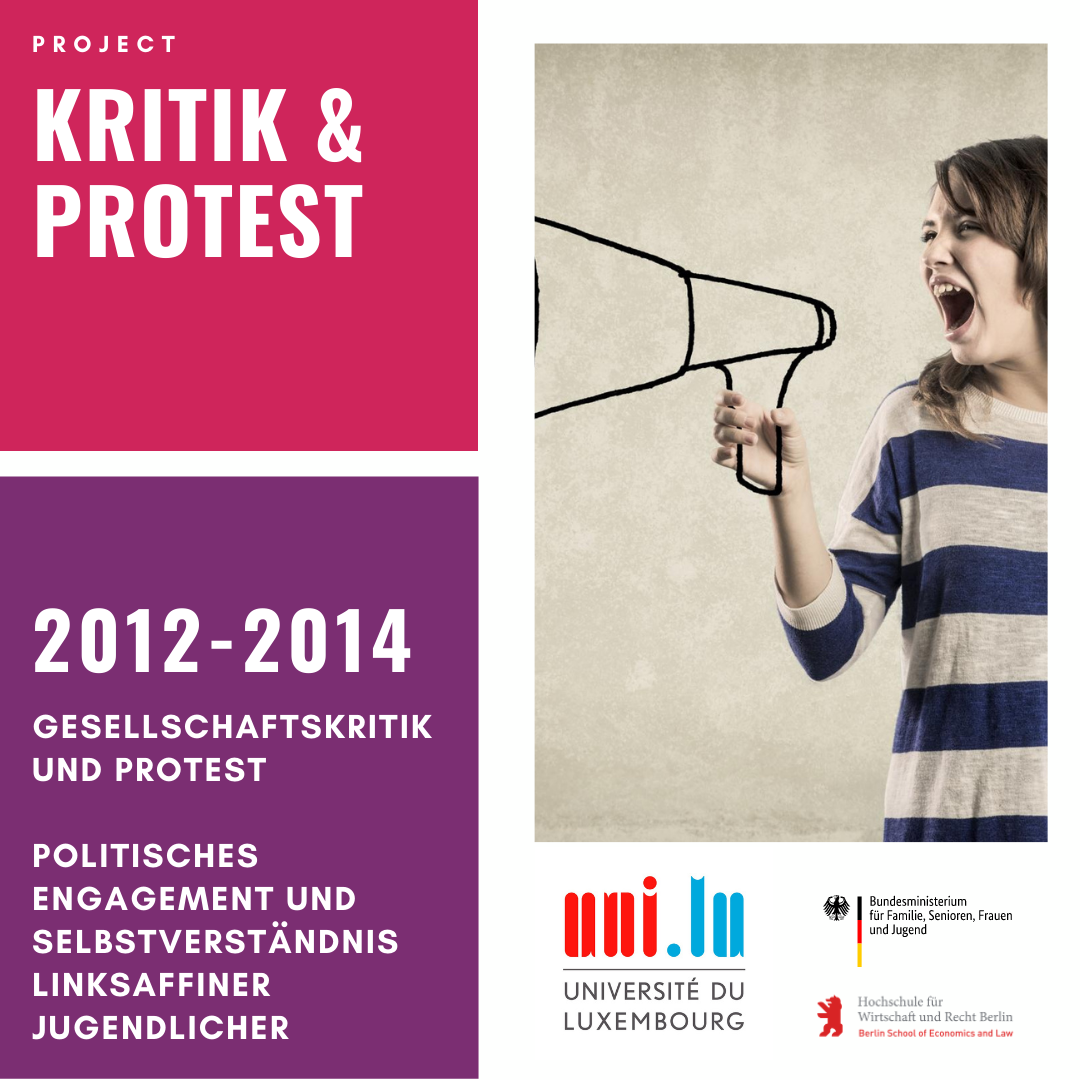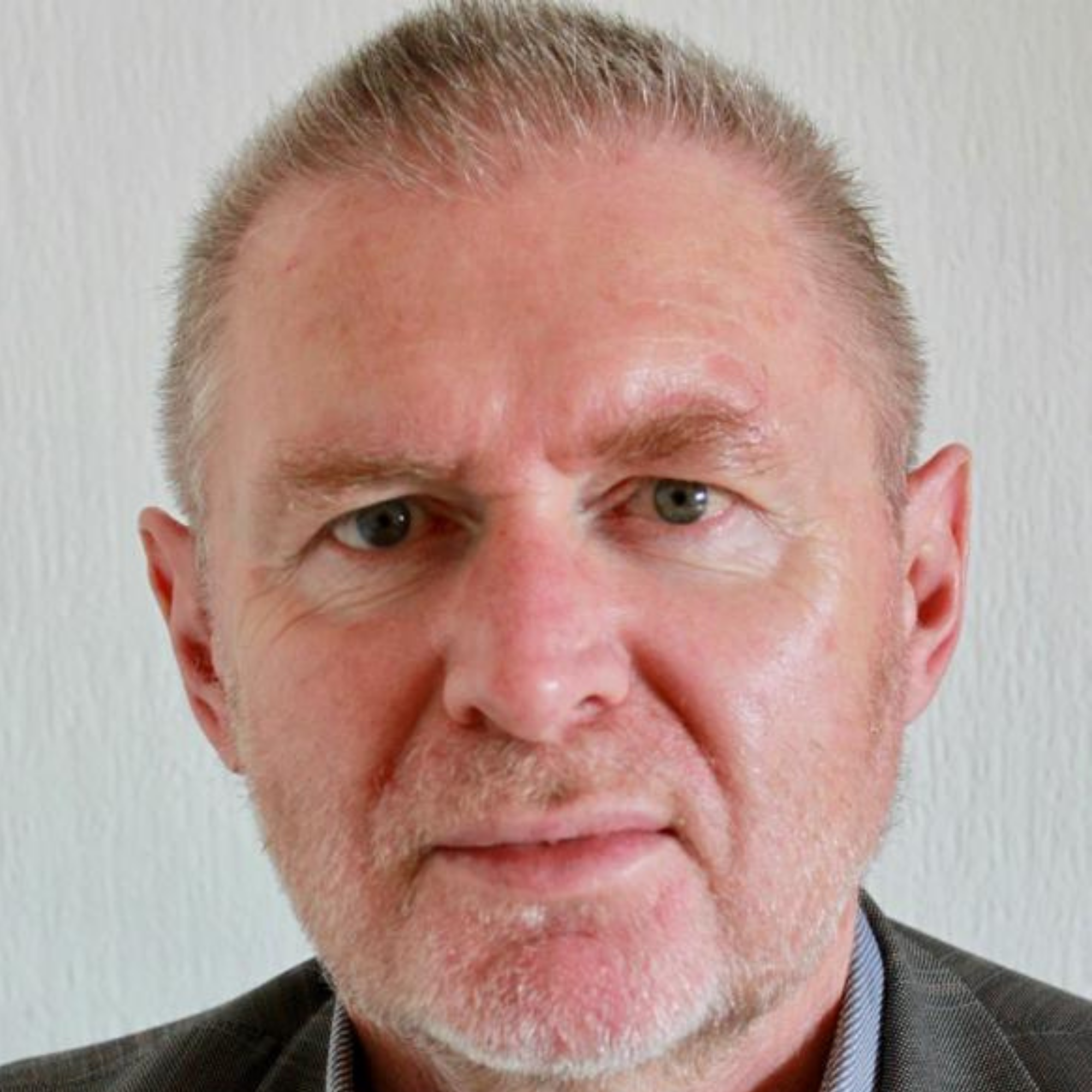Prof Dr Helmut Willems is a sociologist and Professor for youth sociology at the Centre for Childhood and Youth Research (CCY) at the University of Luxembourg.
Social criticism and protest
Political commitment and self-perception of young people with an affinity to the left in Germany
The project deals with politically active young people who classify themselves as belonging to the left spectrum. The study focuses on the questions 1) which self-conception and understanding of society these young people represent and how they implement this in their political practice, as well as 2) how the political commitment of the interviewees has developed and unfolded in the course of their biography. The young people interviewed are given the opportunity to present themselves, to describe their political self-image, their goals and the forms of action they consider.

Jump to content
Data basis and methodology
The analysis is based on 35 qualitative interviews (“PZI- problem-centred interviews”) with committed young people from very different left-oriented political groups, mainly from large cities and conurbations in the new and old federal states.
Results
Who are the committed young people with an affinity to the left and what do they want?
“I would like to have, for myself and for all people, a gain in […] freedom, in determining what should happen […]; How do I want to shape my life, how do we want to shape our life or our living together?” (Interview extract from Hillebrand et al., Political Engagement, 5. 86).
- Within the framework of the study, it was not possible to characterise a homogeneous collective identity or a concrete framework for action. Rather, the respondents differed greatly in their views and forms of action. It also became clear that political orientations are not rigid, but are subject to a permanent process of reflection and change.
- What all respondents have in common is a critical perspective on society. A central point of reference is injustice, understood as the unequal distribution of resources and opportunities. The economisation of all areas of life and the inadequate handling of social crises are also mentioned. The overarching frame of interpretation is often capitalism, which has a structuring effect on all areas of society.
- The young people interviewed show a high level of approval for democracy as a principle of political order, but express strong dissatisfaction with the actual actions and structures of the political institutions, to which only a low level of integrity is attributed.
- Linked to this criticism is the conviction that crisis phenomena can be changed. Social justice, better co-determination, tolerance towards minorities, the dismantling of hierarchies and the turning away from capitalist principles are goals that underlie the commitment of the respondents. The long-term change of social thought patterns and value attitudes is seen as a prerequisite, so that a large part of the forms of action such as flash mobs, workshops and lectures aim to educate and politicise the population.
- For the young people interviewed, in addition to offers of alternative political education, direct forms of action also play a decisive role. These include actions such as blockades, occupations, self-help offers and forms of alternative living together.
The biographical development of engagement
“[The family] definitely made me critically question conditions and also gave me more education, more texts and so on than school has” (interview extract from Hillebrand et al, Political Engagement, 5. 131).
- In this study, engagement seemed to be very presuppositional. It presupposes certain resources and competencies as well as involvement in appropriate networks.
- The parental home plays a major role in the entry into engagement. Here, a basic interest in political and social processes is conveyed, as well as the importance of democratic values and corresponding participation. School, on the other hand, imparts political knowledge, but is not perceived by the respondents as a conducive environment for active political participation.
- (Social) media and personal contacts (peer group and scenes) on the one hand and key events in the life of the respondents on the other hand proved to be entry points for engagement. In addition, there were also ways of slowly increasing involvement, which begins, for example, in the school sphere and gains momentum through the experience of a certain effectiveness of one’s own actions.
- For the respondents, engagement in many cases represents an experience that influences their entire personality and life path in the long term. Political thinking and action, as well as an increased sense of self-efficacy, often become an integral part of the life course. However, engagement also influences lifestyle: in some cases, it leads to longer study times or feelings of exhaustion due to a high time burden.




